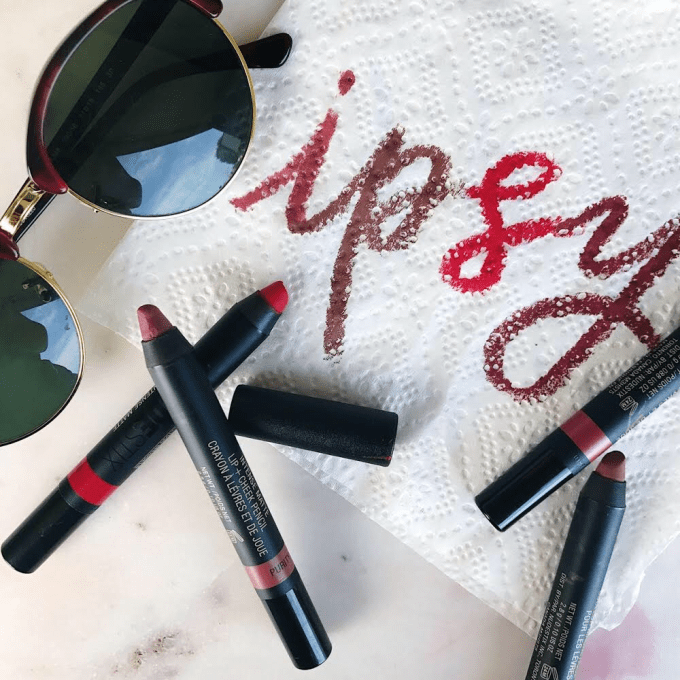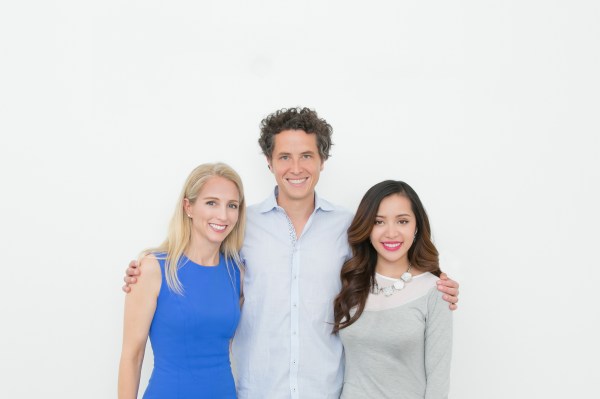ipsy, a subscription service that delivers a collection of products to its users every month, has spent the last six years building up a community with millions of people obsessed with beauty products. And now that the company has more than 3 million subscribers — with a $10 per month subscription cost — it’s ready to get a little bit more aggressive by getting directly into e-commerce.
CEO Marcelo Camberos said the company is launching Shopper, a way for ipsy’s customers to buy products directly from the site rather than wait for them to show up in their monthly Glam Bag. Now, instead of just waiting for the five beauty products in the mail every month, its users will be able to buy products from a myriad of brands on the site directly — opening up a much wider swath of the beauty industry to ipsy, which last raised $100 million about two years ago.
“We’ve never envisioned ourselves as a subscription service, we envisioned ourselves as a disruptive beauty community,” Camberos said. “Our mission is to inspire individuals around the world to express their unique beauty. Everything we do is about self-expression. The Glam Bag and everything else has all been super personalized from the beginning. When I came up with the name for the company, the legal name, it was Personalized Beauty Discovery Inc., it was always meant to be about personalized beauty.”
And this kind of move is not only inspired by the opportunity to get into e-commerce but the company’s ability to build a very robust understanding of who actually uses ipsy and how to grow. Each month, the company produces more than 10,000 variations of its Glam Bags based on the recommendations it generates from the hundreds of data points from its users. That’s meant ipsy has had to build out a big team focused on machine learning as it looks to chase the demands of its users before they even realize they want certain products.
“There’s a lot of lip service around data, and I think even for us in the first two years, we talked a lot about data,” Camberos said. “We’ve made huge investments in it. From the very beginning we’ve had a quiz. Most people who take the quiz connect their Facebook accounts. We have hundrteds of specific data points, people want to give us that data because they want us to give them better products. We get over 5 million product reviews every month. We have a team of over 40 people who do that. If we do a good job, [customers] stay with us a lot longer, and they’re likely to tell their friends how great ipsy is.”
ipsy also said it will be divesting EM Cosmetics, a brand led by co-founder Michelle Phan, as it looks to be more of a neutral party where brands can come and get their products into the hands of users. Phan will also be leaving as part of EM Cosmetics. Rather than building direct-to-consumer brands, Camberos said it wants to utilize its massive community of 8,000 influencers to help brands more effectively reach customers — whether they’re well-known or emerging brands that are looking to get their start. All this is an effort to tap a growing audience of beauty enthusiasts that aren’t just going to malls and retailers to pick up their products.
As ipsy looks to grow, it’s going to lean heavily on that word of mouth and keep its cost of customer acquisition low. With millions of users paying $10 a month, it has the leeway to heavily invest in this new emerging business. But it also has to be careful not to fall into the trap of emerging consumer brands that end up aggressively spending to expand into new markets — especially ones that are outside of their sweet spot, which is often urban markets. ipsy, however, has always had a big following in middle America and is able to grow in multiple markets outside of just the urban bubble, Camberos said.

“We’ve never been an urban company,” he said. “We do over-index in beauty enthusiasts and people who really see beauty as a way to express themselves. They’re maybe less the beauty traditionalists, and maybe that’s why we’re a little less popular in the coasts. It’s not even about targeting, it’s about who’s really gravitated to our service. It’s people who are really into self-expression, but it’s not really been a coastal thing. Our base state is pretty stable, very representative of the whole country.”
One of the biggest challenges now, Camberos said, will actually be holding on to the machine learning team that it’s assembled. ipsy has the luxury of getting a lot of data around a specific set of products, meaning it’s a playground where engineers have an opportunity to experiment and rapidly adapt to the demands of their users. It may be in beauty, but it’s a problem that’s very attractive to the team it’s built by virtue of the data and the complexity of the operation.
Phan played a big part in building momentum for ipsy, but Camberos said that it’s build up a large enough influencer network that the company will help do a good job of ramping up its new e-commerce side on its own. While there’s certainly demand for products like this — Stitch Fix, for example, has built a business strong enough that it has confidentially filed to go public — there are also a lot of businesses that are still trying to figure out their footing. But with a robust customer base, Camberos is hoping that ipsy will be able to target a market it’s always expected to go after at some point — and that now is the right time.
